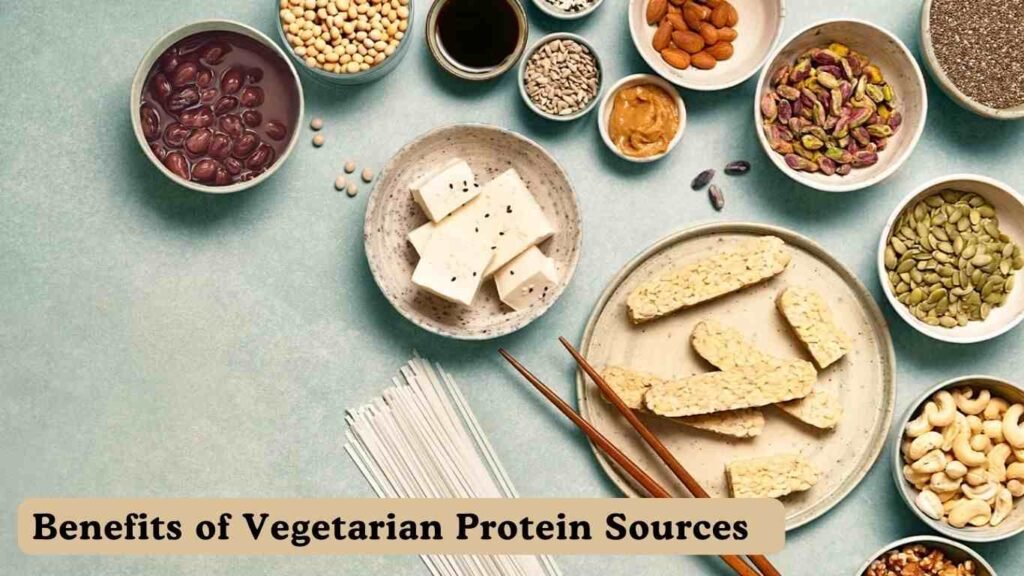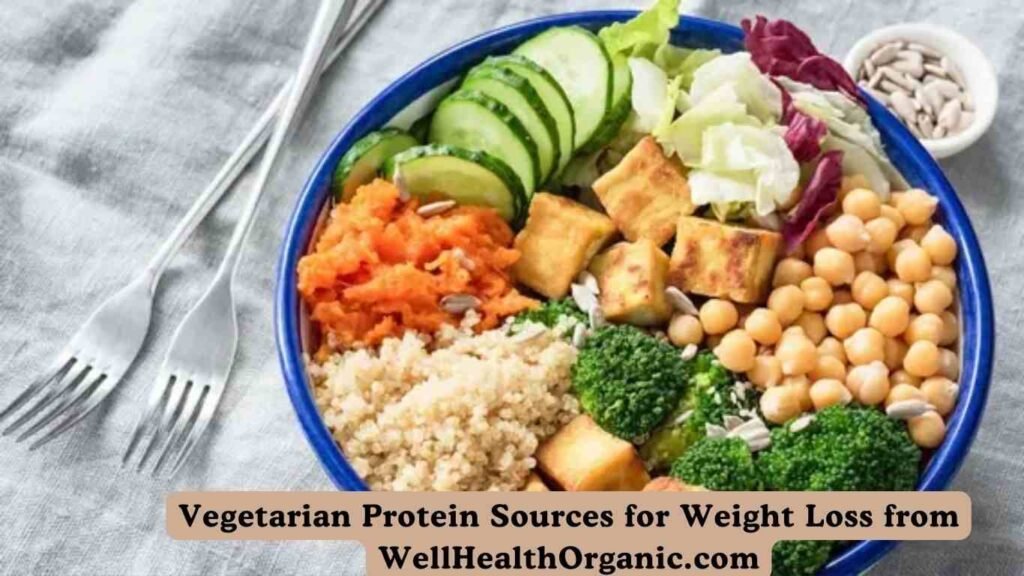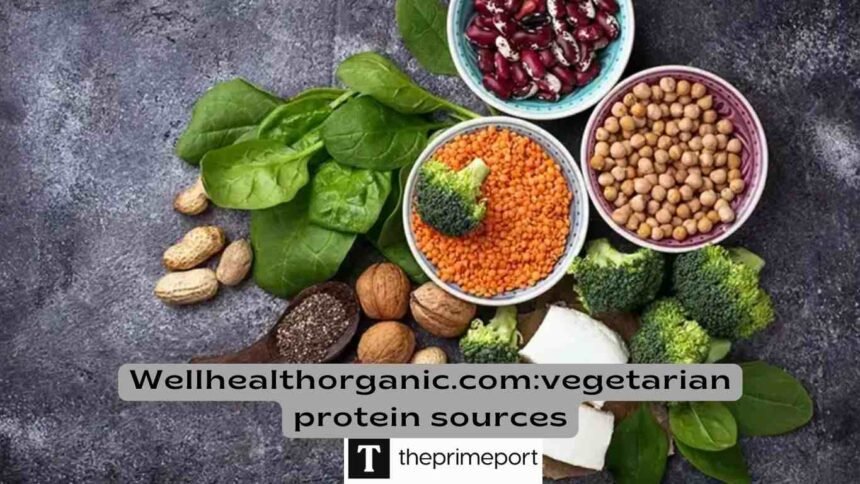With many people shifting to vegetarian diets in today’s society, it is important to highlight options for quality wellhealthorganic.com:vegetarian protein sources that do not break the pocket. An increasing number of people continue changing their diet and choose plant-based foods for health improvement, and ethical reasons. Following this features lower price green vegetables that are rich in protein and available to all people. This applies to not only such meals as lentils and chickpeas on the one hand and eggs and Greek yogurt on the other but also to other affordable yet rich in protein meals.
Understanding Vegetarianism and Protein Needs
Vegetarianism avoids the consumption of meat, poultry and fish and maintains consuming foods derived from plants. Wellhealthorganic.com:vegetarian protein sources in protein requirement is also crucial in vegetarian diets as it provides the muscle’s building block and immune boost. Foods that contain appropriate amounts of those nutrients include legumes, nuts, seeds, and dairy products, tofu, and tempeh. In order to be sure that vegetarian people have no problems with their protein intake. It is vital to comprehend these sources and their nutritive values.
Benefits of Vegetarian Protein Sources

- Nutritional Value: However, plant proteins have other attributes and nutrients such as fiber vitamins and mineral which are important.
- Health Benefits: Plant protein is not related to so many health issues and the risk of chronic diseases such as cancer is relatively lower and, digestive problems are also minimized by having proteins from plant sources.
- Environmental Impact: Environmental stability and decreased utilization of resource to develop new products.
Types of Vegetarian Protein Sources
- Legumes: Beans, lentils and chickpeas are also sources of protein, fibers as well as iron.
- Nuts and Seeds: The nuts like almonds, seeds such as chia seeds and hemp seeds contain protein, helpful fats, and vitamins and minerals.
- Whole Grains: Quinoa, brown rice, and oats provide protein besides those carbohydrate foods with a high glycemic index.
- Soy Products: Tofu, tempeh and edamame are all good sources of proteins and contain all the amino-acids that are essential in our diet.
Vegetarian Protein Sources for Weight Loss from WellHealthOrganic.com

- High Protein, Low Calorie: One should try those foods that are rich in protein but are low in calories such as legumes, nuts, and seeds that help in muscle building and repair.
- Fiber-Rich Choices: Add the possible proteins that include whole grains and green vegetables like quinoa, spinach, and broccoli as they provide fiber that assists in digestion and boosts the satiety level.
- Plant-Based Protein Supplements: The plant derived protein based powder available at WellHealthOrganic, includes pea protein and soy protein. com, a perfect addition to a smoothie or even meal that will help to add protein without adding more fats.
- Balanced Meal Planning: Draw up a list of meals where vegetarian proteins are a part of the dish and are accompanied with fats and carbohydrates to ensure that they are a part of a meal that is so fulfilling that it will help one achieve his or her dream weight.
Indian Vegetarian Protein Sources
- Lentils (Dal): Commonly used in India, has high amount of protein and fibre.
- Chickpeas (Chana): Nutritious and many-sided pulses containing proteins as the ingredient of curry, salads, and popular snack, falafel.
- Paneer (Indian Cottage Cheese): Good source of protein and calcium commonly added in foods such as paneer tikka and palak paneer.
- Soybeans: Used in forms such as textured soy protein (TSP), which is in the form of soy chunks also known as soya nuggets, tofu mostly used in vegetarian preparations.
How to Intergrate Vegetarian Protein into Your Meal Plan
- Balanced Meals: Introduce one or more sources of protein with vegetables and whole grains.
- Snack Options: Nut containing trail mix or yogurt with seeds makes protein a convenient one.
- Recipe Ideas: Try options such as lentil soup, quinoa salad dish or tofu stir fry for your meals.
Addressing Common Concerns
- Protein Quality: Thus there is a capability of complementing the plant proteins to give a balanced profile of amino acids.
- Digestibility: Cooking also increase nutrient bioaccessibility because it improves digestion of the nutrient by breaking down the structure of the food.
Cheap Vegetarian Protein Sources
There are numerous cheap vegetarian proteins that are healthy and delicious and perfect for those who are working to a tight budget. Wellhealthorganic.com:vegetarian protein sources combined with adequate fiber and nutrients is also found in legumes such as lentils, beans, and chickpeas. Another source of cheap food that contains genuinely good-quality protein is eggs. Compared to meat, Greek yogurt also contains protein, different forms of the same at a cheaper price. Tofu and tempeh, both derived from soybeans, provide protein economically and can be used in various dishes. Incorporating these options into meals ensures cost-effective ways to meet daily protein needs without breaking the bank.
Conclusion
Embracing vegetarianism offers a pathway to health and sustainability through diverse protein sources that cater to different dietary preferences and budgets. Wellhealthorganic.com:vegetarian protein sources incorporating legumes, nuts, seeds, dairy alternatives, and plant-based proteins, individuals can meet their nutritional needs without animal products. This dietary choice not only supports personal health but also promotes environmental conservation. Choosing vegetarian protein sources ensures a well-rounded diet that fosters long-term well-being and contributes positively to global sustainability efforts.
FAQ’s
Ans. Yes, vegetarians can meet their protein needs through sources like legumes, tofu, nuts, and dairy products.
Ans. Lentils, chickpeas, quinoa, and soy products like tofu and tempeh are excellent alternatives.
Ans. By consuming a variety of protein sources throughout the day, vegetarians can easily obtain essential amino acids.
Ans. Yes, legumes, beans, eggs, and Greek yogurt are affordable and protein-rich choices.
Ans. Lower risk of heart disease, hypertension, and certain cancers, along with potential weight management benefits, are associated with a balanced vegetarian diet.
Also,Read about-










